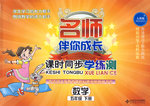题目内容
All the wisdom of the times, all the stories that have delighted mankind for centuries, are easily and cheaply available to all of us in books, but we must know how to make use of this treasure. The unluckiest people in the world are those who have never discovered how satisfying it is to read good books.
I’m very interested in people and finding out about them. Some of the most amazing people I’ve met could only be found in a writer’s imagination, then in his book, and then, again, in my imagination. I’ve found in books new friends and new worlds.
Reading is fun, not because the writer is telling you something, but because it makes your mind work. Your own imagination works along with the writer’s or even goes beyond his. Your experience, compared with his, brings you to the same or different conclusions, and your ideas develop as you understand his.
Every book stands by itself, like a one-family house, but books in a library are like houses in a city. Although they are separate(分开的), in some way they are connected with each other. The same ideas, or related(相关的) ones, appear in different places; the human problems that repeat themselves in life repeat themselves in books, but with different solutions(解决方法) according to different writings at different times. Books influence each other. They connect the past, the present and the future and have their own generations (age groups), like families. Wherever you start reading, you connect yourself with one of the families of ideas, and in the end, you not only find out about the world and the people in it, you find out about yourself, too.
Reading can only be fun if you expect it to be. If you concentrate on(专注于) books somebody tells you “ought” to read, you probably won’ t have fun. But if you put down a book you don’t like and try another till you find one that means something to you, and then relax with it, you will almost certainly have a good time — and if you become, as a result of reading, better, wiser, kinder, or more gentle, you won’t suffer during the process.
1.Which of the following ideas may the writer of this article agree with?
A.You will never meet amazing people in your life unless you read.
B.You think actively instead of getting facts passively(被动地)when reading.
C.You will get much delight from any book that you are told to read.
D.You can relax yourself by reading because it involves little thinking.
2.What can we learn from Paragraph 4?
A.We can often find something connected with ourselves in books.
B.Different writings at different times share the same characteristics.
C.The same problems will appear in different books with similar solutions.
D.Reading books which are written for your generation is more helpful to you.
3.What’s the writer’s purpose of writing this article?
A.To advise us to enjoy ourselves by reading.
B.To encourage us to make full use of libraries.
C.To encourage us to find out solutions in books.
D.To advise us to discuss books with other people.
1.B
2.A
3.A
【解析】
试题分析:这篇短文中作者主要就读书问题发表了自己的几点看法,告诉我们读书不应该是被动的读书,而是要积极的思考。书本内容就是现实生活的反应,通过各种形式同我们的生活联系在一起,我们要学会在阅读中寻找自己的快乐。
1.根据短文第二三段描述,可知作者认为读书时不应该被动的接受事实,而是应该积极的思考。故选B。
2.根据本段Wherever you start reading, you connect yourself with one of the families of ideas, and in the end, you not only find out about the world and the people in it, you find out about yourself, too.描述,可知选A。
3.根据短文最后一段可知作者写作的目的就是为了让我通过阅读来获得快乐。故选A。
考点:关于读书问题的议论文阅读
点评:本文中长句较多,一时很难读懂句子含义,注意多读几遍,不要强求非得理解一词一句的含义,能把握文章大意就行。然后带着问题阅读短文,一般就能顺利找出答题依据。对于不能直接找到根据的问题注意联系上下文,根据短文中心总结出正确答案。

 名师伴你成长课时同步学练测系列答案
名师伴你成长课时同步学练测系列答案